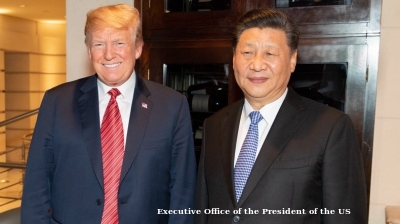Hungary has expanded the list of countries included in the so-called "National Card" programme to include Russia and Belarus, raising security concerns among its Schengen zone neighbours.
The National Card is issued in Hungary to individuals wishing to work there for two years, with the option to extend their stay without undergoing security checks under an expedited process. Participants in this programme can also move their families to Hungary. After three years, they can apply for a permanent residence permit.
Officially, the cardholder is not a guest worker and does not appear in statistics and different national quotas either.
The scheme was also expanded to citizens of Montenegro, Moldova, Bosnia and Herzegovina and North Macedonia. Initially, only Ukraine and Serbia were part of the programme.
Manfred Weber, President of the European People's Party in the European Parliament, sent a message to European Council President Charles Michel, saying that Budapest's decision raises "serious national security concerns". He urged EU leaders "to take the most stringent measures possible to urgently protect the integrity of the Schengen area".
Weber said the new rules "create grave loopholes for espionage activities, posing a serious risk to national security". "This policy could also make it easier for Russians to move around the [borderless] Schengen area, bypassing the restrictions required by EU law," Weber said in his letter.
Russia has stepped up acts of espionage and sabotage in the EU since its invasion of Ukraine.
The Baltic states have also criticised Budapest for the move, saying the regulation jeopardises the security of the Schengen area.
In response, Hungary’s chief diplomat accused them of launching a misinformation campaign. The government's move "does not ease strict security controls over incoming Russian and Belarusian citizens in any way", said Peter Szijjarto, who has strengthened Budapest's ties with Moscow during his tenure as foreign minister.
The amendment of the National Card programme is linked to the government's re-industrialisation strategy, according to the liberal Momentum party, which regrets that the government has given up on the hundreds of thousands of Hungarians leaving the country in the past 10 years, instead increasingly filling the gaps in the labour market with foreign workers.
The government tightened rules on immigration in December, but at the same left the door open for the arrival of guest workers to ease the dire labour shortage in the economy. Hungary’s active labour force is shrinking by an annual 30,000-40,000 and the problem is aggravated by increasing emigration of those who have given up hope of a better life under Viktor Orban's increasingly authoritarian regime.
The government has set an annual quota of 65,000 for guest workers, well below the number of open positions. In 2022 less than 40,000 permits were issued.
The Helsinki Committee, frequently the subject of smear campaigns by the Orban government, seems to agree with the cabinet on this particular issue. The NGO reports that it is in contact with several Russian and Belarusian clients who are fleeing the authoritarian regimes in their home countries. They point out that if these individuals were forced to return, they would likely face torture, conscription, or imprisonment.
The Helsinki Committee asserts that, even with the National Card, these individuals are not exempt from national security checks, and national security considerations are still taken into account for their long-term stay in Hungary.
Foreign security analyst Anton Bendarjevskiy also shares this view. Applicants have to present proof of income, residence, and a letter from their employer to participate in the programme and this scheme will not lead to higher espionage activity by Russia, he opined.
Hungary, unlike its EU peers, has not expelled any Russian diplomats since Moscow's war against Ukraine. On the contrary, their number has increased in the past two years.
News

Trump and Xi to meet in Busan, South Korea
The meeting comes after weeks of uncertainty over whether the encounter would take place. A trade dispute flared earlier this month when Beijing expanded export curbs on rare‐earth minerals, prompting the US to threaten additional tariffs.

Russia will remain defiant against US sanctions pressure, Putin claims
The sanctions come at a time when Russia’s two largest energy buyers, China and India, have shown signs of reducing their oil imports from Russia.

Russia rules out seizing EU assets but warns of retaliation if confiscations proceed
Russia will not seize European Union assets currently operating within its borders, Russian Deputy Finance Minister Alexei Moiseev has said.


